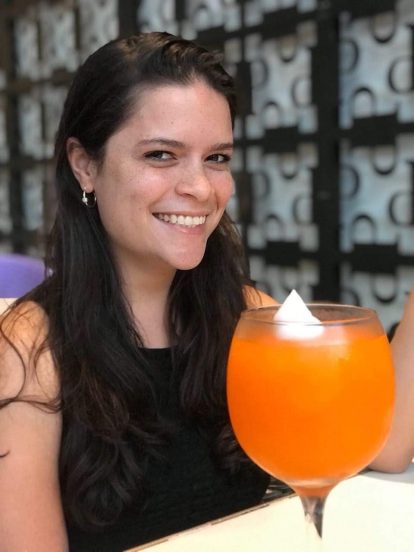 When Melany Vergara applied to the Foreign Languages Program (English and French) at the Universidad del Atlántico in her hometown of Barranquilla, Colombia, she had no idea the path she was choosing would lead her back to Spanish.
When Melany Vergara applied to the Foreign Languages Program (English and French) at the Universidad del Atlántico in her hometown of Barranquilla, Colombia, she had no idea the path she was choosing would lead her back to Spanish.
During the fourth year of her Licenciatura studies in Barranquilla, she took advantage of an opportunity to spend two months in Culiacán, the capital of the state of Sinaloa in Mexico, teaching English in an orphanage. But shortly after her arrival, once she realized the orphans were mostly illiterate in their mother tongue, Melany switched to Spanish, tutoring, mentoring, and helping the children to complete their school projects.
The sensitivity to injustice that Melany’s own experience growing up in a marginalized neighborhood in Barranquilla had instilled in her was profoundly deepened and broadened by her work with the children in the orphanage in Culiacán. The challenging conditions those children had endured — domestic abuse, drug-related violence, homelessness — inspired her decision to pursue an advanced degree at the University of Florida and focus her study and research on the representation of children surviving in violent environments in Colombian, Brazilian, and Mexican literature and film.
Melany believes that by analyzing such material and sharing her findings, she can increase awareness of the ongoing violation of children’s human rights. She hopes that her research might help everyone understand the complex circumstances involved in the portrayal of children, as both victims and victimizers, in Latin American literature and film.